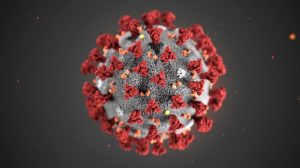Experts from various areas warned today of the high burden in Portugal of infection by Respiratory Syncytial Virus (RSV), which causes bronchiolitis, arguing that it is necessary to define a universal preventive method for all children.
A document, to which Lusa had access to reveals that experts state that respiratory infections that require hospitalisation by RSV in children under five are 5.6 children in every 1,000.
“By 12 months of age, approximately half of the children have had a respiratory syncytial virus infection. And the studies say that at the age of three all children have had at least once the respiratory syncytial virus,” says pediatrician Manuel Magalhães, from the Northern Maternal and Child Centre.
The infection can range from a simple cold to “severe bronchiolitis or viral pneumonia,” requiring intensive care hospitalisation, warning that depending on some factors (premature babies with low weight, or who have chronic pathology), have an increased mortality risk.
Experts further stress that the majority of hospitalisations (95%) “occur in healthy children” and that the real impact of RSV in Portugal is “significantly underestimated,” pointing to the need to improve the combat strategy, which they consider ineffective.
The recommendations now known came in the wake of the RSV Think Tank – Inspire change, a Sanofi initiative conducted in partnership with XXS – Portuguese Association for the Support of Premature Babies and APES – Portuguese Association of Health Economics. The expert panel was attended by pediatricians and neonatalogists, public health doctors, nurses, economists, parents’ associations, health authorities, and decision-makers.
In addition to pointing out the need to know the real impact of these infections in Portugal – remembering that only hospital case figures are known, they insist on the importance of defining measures at three levels: literacy, pharmacological and non-pharmacological.
To overcome the barriers to literacy, they recommend that the topic becomes a mandatory approach in consultations with pediatricians for certain age groups. For this, they suggest changing the individual child and youth health bulletin.
To reduce the spread of RSV, in addition to the usual protective measures used during the pandemic (masks and frequent hand washing), they call for facilitating the bureaucratic process of parents being able to have time off to nurse their children. If this does not happen, then parents will be forced to leave their sick children at daycare centre’s thus risking the chance of spreading the infection.
Similar to Covid-19 the vectors of transmission of the respiratory syncytial virus to adults and grandparents can prove fatal in those with weakened immune systems.
As for pharmacological measures, they advocate the creation of a national working group dedicated to RSV or the restructuring of the group that developed the standard for Palivizumab, the monoclonal antibody used to prevent serious disease, and which is only administered to a few priority cases.
They also want there to be a “universal preventive method” that is made available “equally” to all children.
Manuel Magalhães also believes that in addition to the monoclonal antibody used in some cases in Portugal (Palivizumab), and (Nirsevimab) which is approved and available in Spain. France and Italy are also moving in this direction: “The strategy would be to administer this monoclonal antibody to prevent serious infection in children in the first year of life, thus providing universal protection.
“Palivizumab is not approved for universal distribution, only to premature babies at great risk. While Nirsevimab has undergone thorough testing, is approved, and can be administered to everyone.
Concluding, he says that universal administration before the seasonal season of RSV can truly change acute respiratory disease in childhood.
Samantha Gannon
info at madeira-weekly.com







